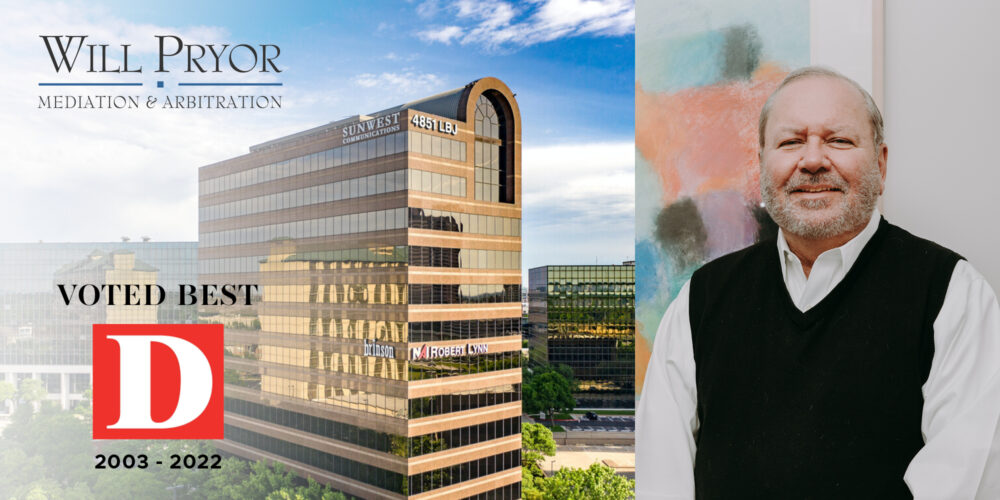Don’t get me wrong. I am pleased and proud, once again, to have been included among “The Best Lawyers in Dallas” in the current issue of D Magazine. Congratulations to my mediating colleagues who also made the list, especially to my friends Mary Burdin and Chris Nolland. As far as I know, Mary, Chris and I are the only neutrals who have made the list every year since D Magazine began publishing these lists in 2003.
But again, let’s not get carried away. D Magazine would do everyone a service if they would take a break from this annual issue. The methodology is more suspect than ever (mediators vote only for other mediators — makes no sense). I’m just not sure the public is being well served.
Something I’m Truly Proud Of
What really makes me happy is that in April I performed twelve mediations. Nine resulted in settlement agreements, and in one a mediator’s proposal is still outstanding. In additiion, I participated in a creative arbitration panel “focus group”, went up on another roof in connection with performing my role of umpire in an insurance appraisal, and finished up my teaching schedule for my ADR course at the Dedman School of Law at SMU (I’ve been teaching that course since 1999!). Because I teach dispute resolution, I am always eager to engage in processes other than mediation.
Which reminds me. Whatever happened to Summary Jury Trials? I have some thoughts, but I’ll save them for next month.
